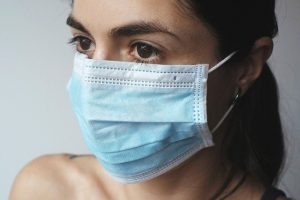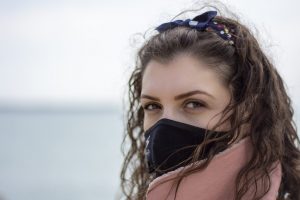Importance of Wearing Masks

As the 2019 coronavirus pandemic (COVID-19) takes hold, the majority of the local population’s use of facemasks is being discussed. Individuals often use facemasks to protect themselves, but we demonstrate that a more powerful public health rationale is to manage resources to shield other people within the community from contracting respiratory droplets. This strategy is essential because of the potential for asymptomatic transmission of SARS-CoV-2.
As we are still in the pandemic, you must know where to buy n95 mask as part of the new normal.
Another problem is the lack of mask distribution at the local level. Medical masks should be available to healthcare workers. However, for disease source control and not for self-protection, it is believed that specific materials for reusable and washable masks, such as those supported by the CDC, are more appropriate, especially if everybody wears one. Cloth masks are very easy to make yourself or make at home and reuse after washing.
First Line of Defense Against Virus
 Although wearing a mask will not a hundred percent protect you from the virus, it will save you from the droplets of the infected person. Not only that, but you can also watch other people from contracting it. As the virus continuously mutate, many people are asymptomatic and not aware that they are the carrier of the virus. By wearing a mask, it shows that you not only care about yourself but also your loved ones and your community.
Although wearing a mask will not a hundred percent protect you from the virus, it will save you from the droplets of the infected person. Not only that, but you can also watch other people from contracting it. As the virus continuously mutate, many people are asymptomatic and not aware that they are the carrier of the virus. By wearing a mask, it shows that you not only care about yourself but also your loved ones and your community.
Slow the Spread of the Virus
Wearing a mask will not entirely stop the virus from entering the environment, where others can inhale it—gently trapping viral droplets in your fibers. While facemasks are not ideal barriers to transmission, neither should they be if used independently. The universal use of facemasks should be accompanied by other public health measures, such as physical removal, testing, contact tracing, and large parties’ restriction. These measures are not perfect, but when many imperfect measures are combined in a neighborhood, they can be highly effective in curbing transmission and reducing disease.
Prevent Asymptomatic Transmission
 Wearing a mask is an easy way to reduce the chance of unknowingly spreading the disease, he says, but it’s not a panacea: people also need to practice social distance and good hand hygiene. It’s also worth noting that most cloth face covers aren’t enough to fully protect you from the coronavirus.
Wearing a mask is an easy way to reduce the chance of unknowingly spreading the disease, he says, but it’s not a panacea: people also need to practice social distance and good hand hygiene. It’s also worth noting that most cloth face covers aren’t enough to fully protect you from the coronavirus.
Bottom Line
Face masks can also reduce this pandemic’s unfair effects, especially for people living in crowded environments where it isn’t easy to maintain physical distance and people employed on the front lines. The risk of exposure to the virus is most significant.


